Healthy Sleep Habits and Tips For Adults
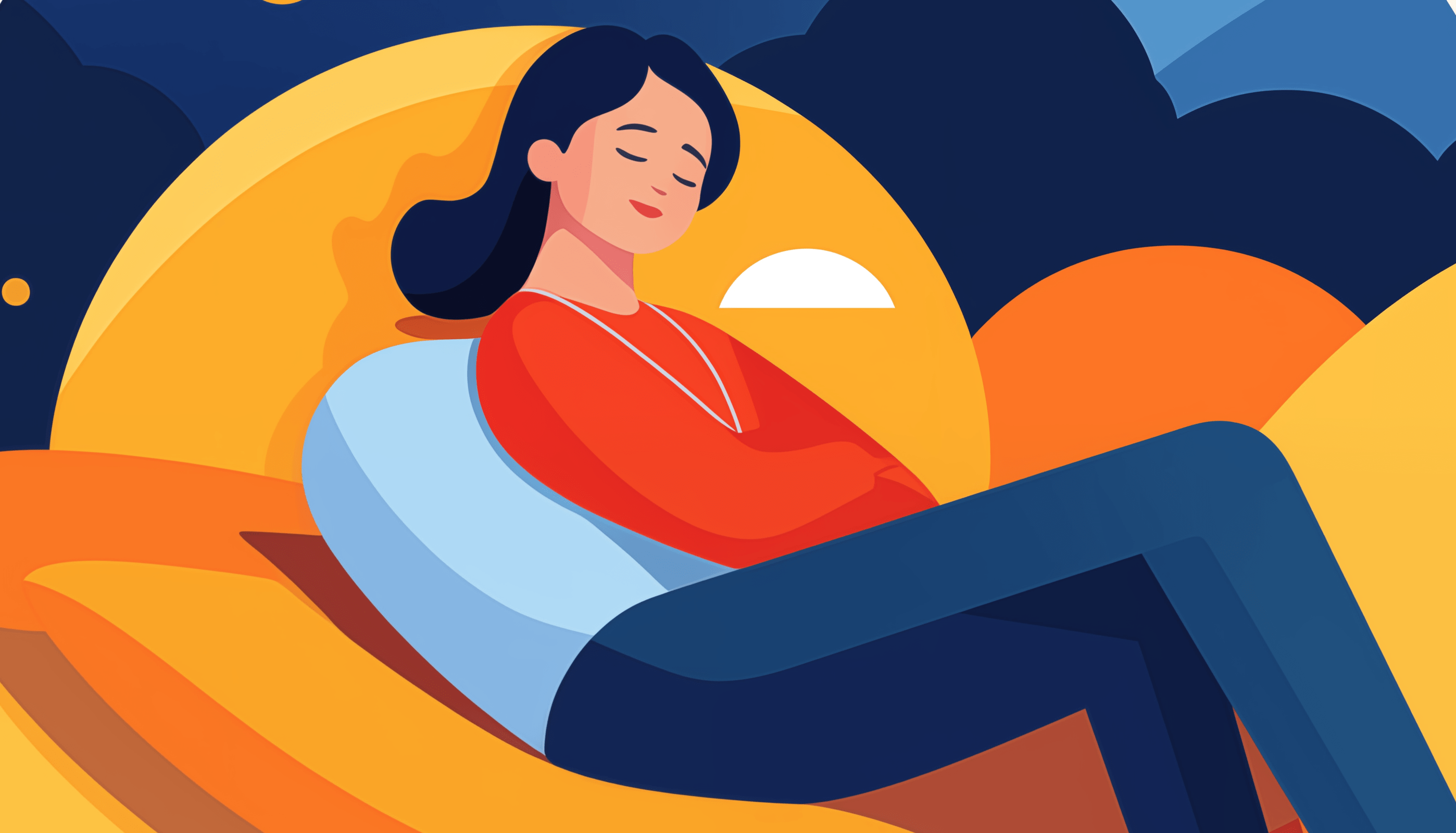
After researching the latest evidence around sleeping habits we’ve come up with some interesting facts and tips on this topic that we’d like share with you, starting with some common questions and myths:
- How bad are the consequences of sleep deprivation?
- How many hours are enough?
- Can you recover by having a marathon sleep session?
- What about Melatonin, Magnesium and other supplements?
- How we can improve our overall sleep quality and quantity?
First, how bad is the lack of sleep?
The short answer is: it’s really, really bad. It can have a negative impact on various aspects of your life, like cutting your longevity by up to 10 years, diminish testoterone production, increase stress & anxiety throughout the day and night, interfering with your learning process, and weakening your immune system.
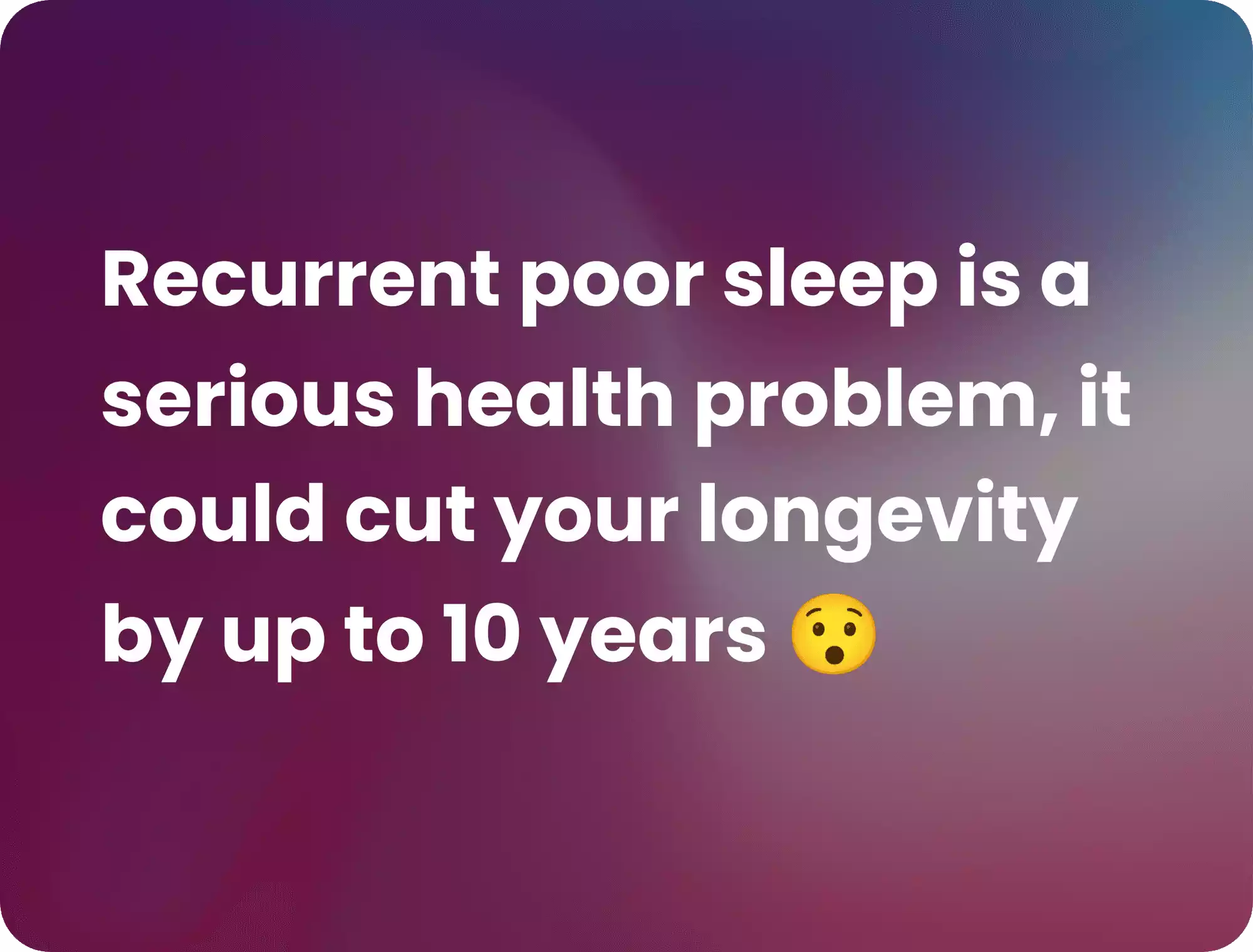
Image created with ByPeople Composer
Let’s address these problems:
Good quality sleep is linked to productivity and performance. Even if we didn’t already know this intuitively, a study published in the journal Sleep found that individuals who have sufficient sleep are more likely to have better concentration, memory, decision-making abilities, and overall job performance.
Poor sleep weakens the immune system, even a single night of 4/5 hours can lower NK cell (so to speak, your natural defenses) activity by up to 70% the next day! Yes, you read it correctly: Seventy percent! That’s one of the reasons why you might experience to get the flu more easily after some bad nights!
Sleep deprivation has been classified as potentially carcinogenic, also mild depression and anxiety are associated with poor sleep, up to 60% of cases of mild depression can be improved with proper sleep habits.
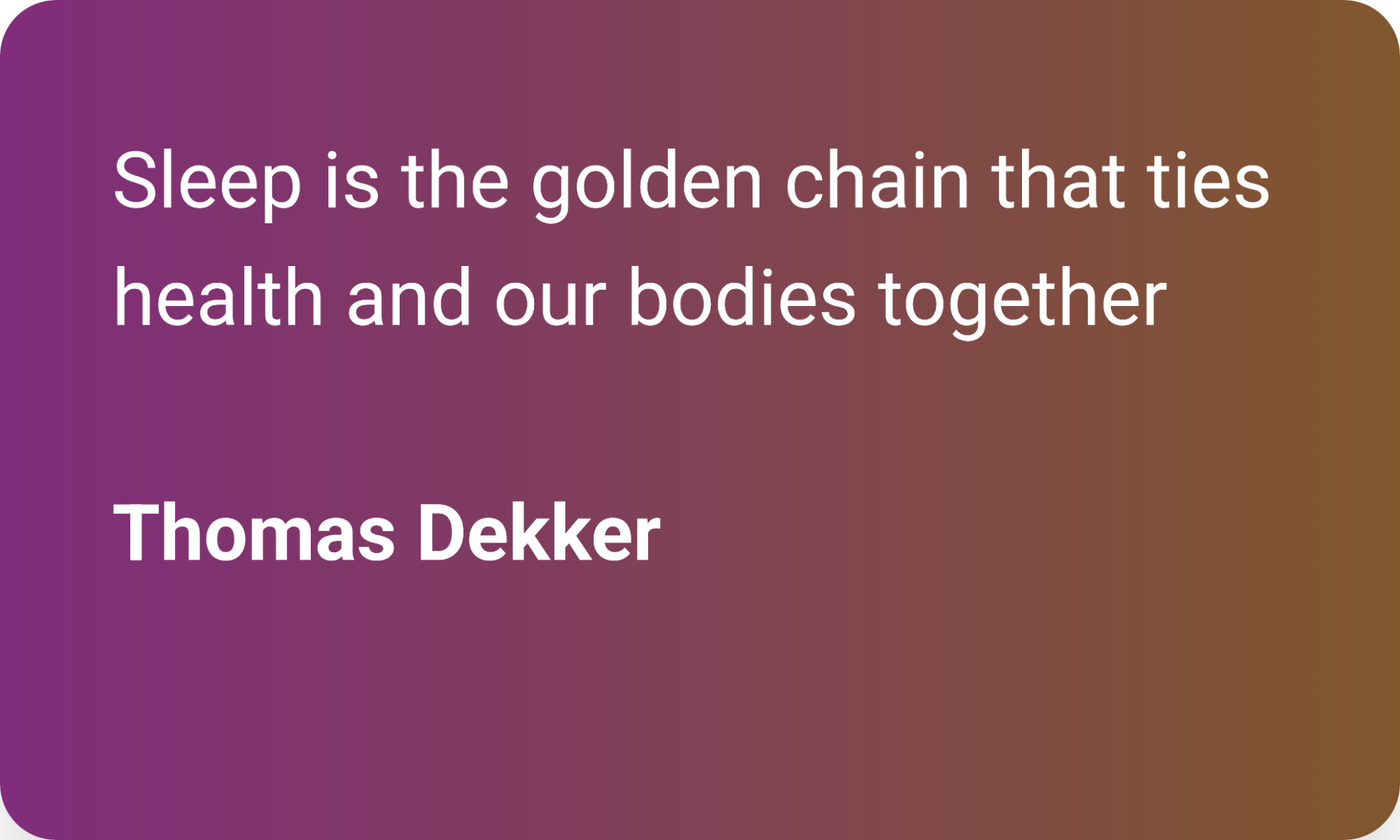
Image created with ByPeople Composer
Furthermore, a study published in the journal Sleep found that individuals who consistently slept for less than 6 hours per night had a higher mortality rate compared to those who slept between 6 and 8 hours.
Chronic poor-quality sleep has been associated with accelerated aging processes such as developing wrinkles (skin aging), cognitive decline, and increased frailty in older adults.
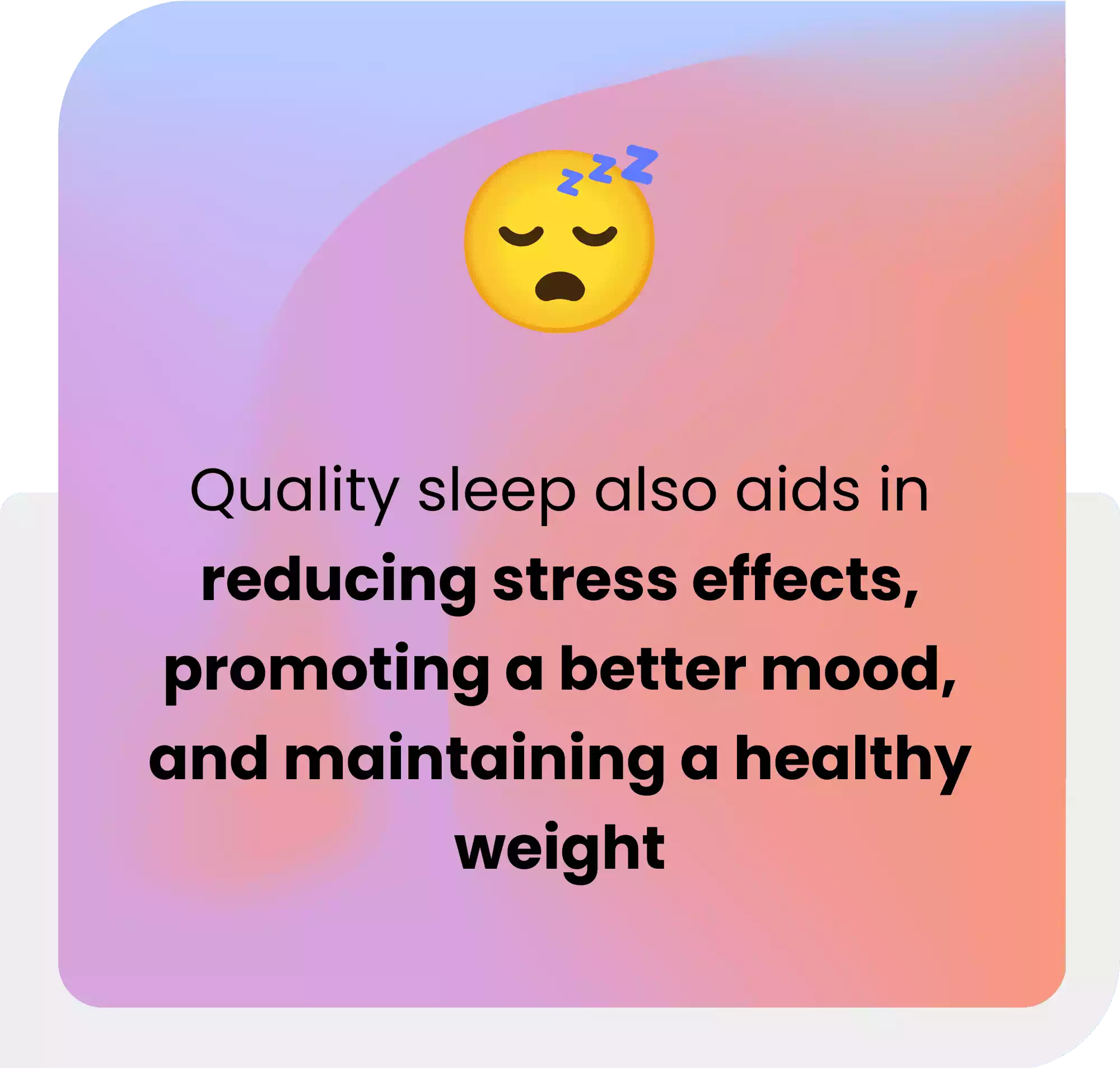
Image created with ByPeople Composer
Sleep deprivation can also adversely affect your reproductive health and overall longevity leading to up to a 10-year reduction in both. Lack of sleep, especially REM sleep, can decrease testosterone production, which has serious implications for overall health.
Sleep is vital for learning consolidation, not just for retaining information but also for preparing the brain to learn enhancing clarity of thought. Quality sleep also aids in reducing stress effects, promoting a better mood, and maintaining a healthy weight.
In conclusion, improving the quality of your sleep is probably the single best action you can perform to improve almost every aspect of your life. If you are not having quality sleep habits, please start addressing the issues now!
So, how can sleep be improved? Let’s dive into the solutions:
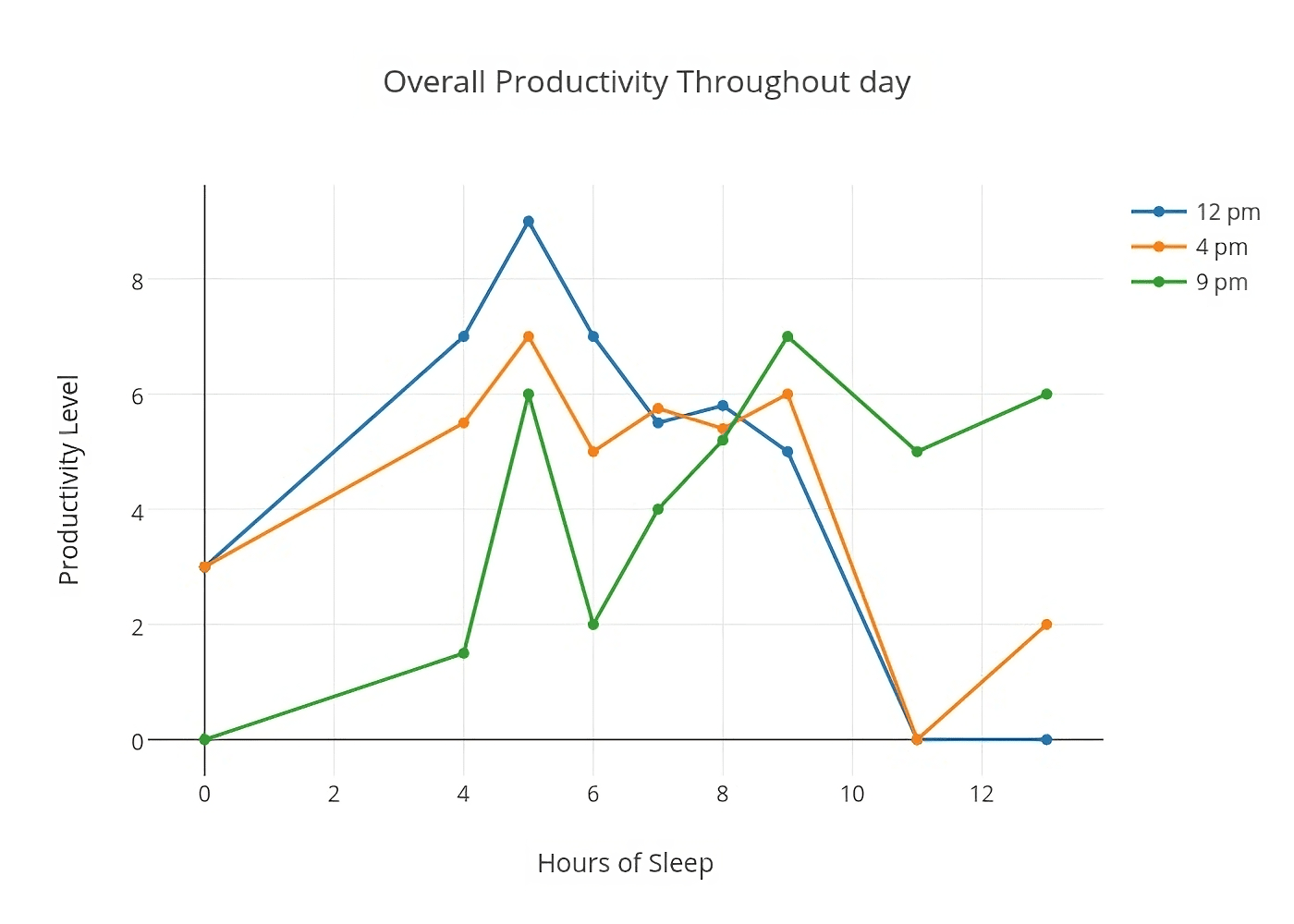
How Many Hours Are Enough?
Aim for a minimum of 6.5 hours of sleep (for most adults) with the ideal range being 7 to 8 hours, so there’s not a lot of wiggle room here. Sleeping less than this can be detrimental, and you should never trust that workaholic’s advice that 4/5 hours of sleep are good enough. It is demonstrably false!
Don’t use the first few minutes after waking up to determine if you slept well. Instead, use sleep trackers or keep track of your total sleep hours. Sleep inertia makes it challenging to accurately judge the quality of sleep based solely on how you feel upon awakening.
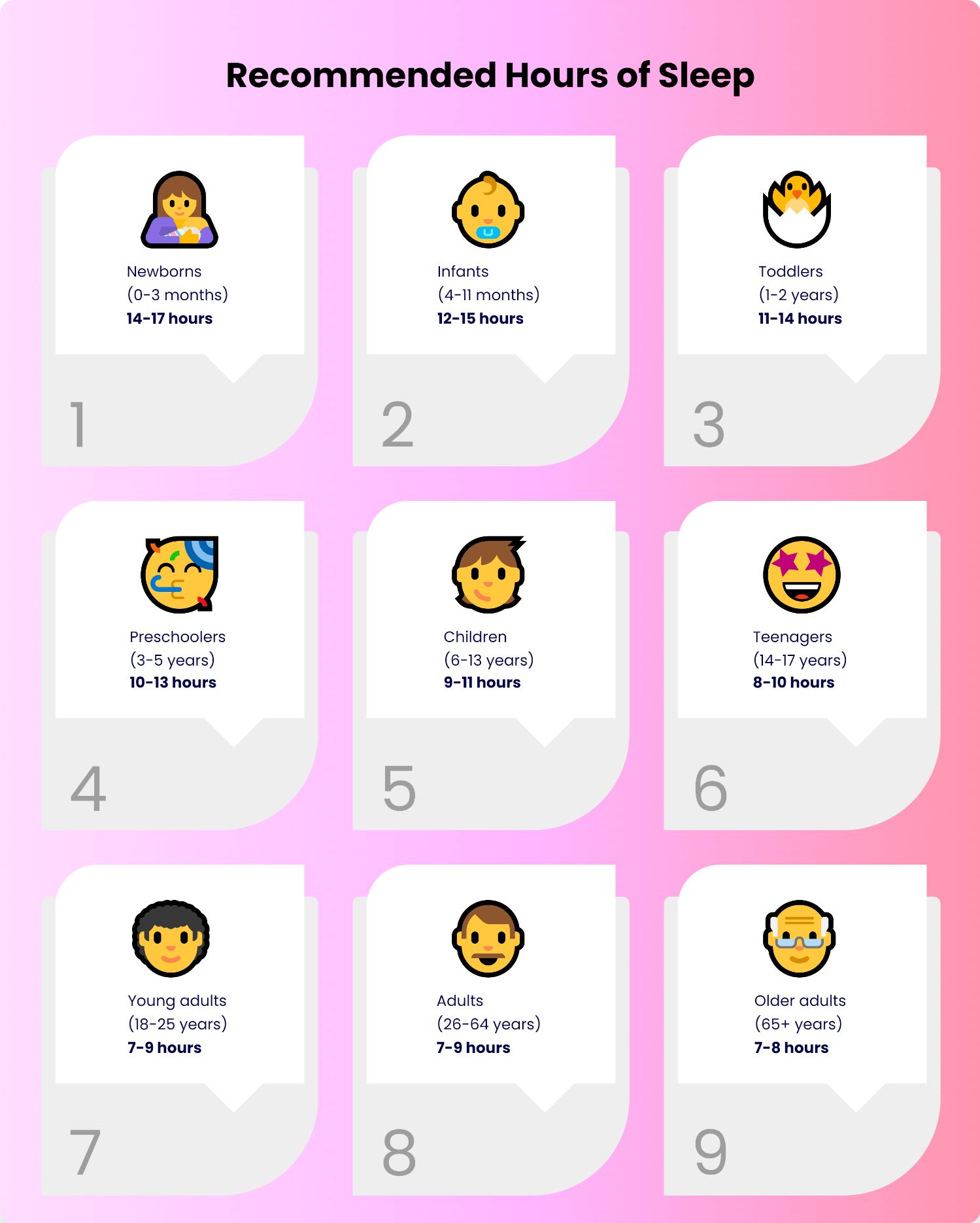
Poster created with ByPeople Composer
Consistency Is Fundamental: Can You Recover With a Weekend Sleep Marathon?
Our brain is perfectly well adapted to different circadian cycles (so-called because they last about 24 hours), which is why it responds very well to time consistency. That’s why maintaining a regular sleep schedule for going to bed and waking up is crucial.
Experts agree that even on days when we’ve had a bad night’s sleep, we should stick to our regular bedtime and avoid trying to sleep earlier to “make up for lost sleep,” except in extreme cases like jetlag.
Similarly, having sleep marathons on weekends to try to make up for lost sleep is not recommended. On one hand, we lose the consistency and regularity we should maintain, and furthermore, evidence has shown that lost sleep during the week cannot be fully recovered with weekend sleep marathons. If we’ve had poor sleep, the only recommendation is to take a short nap of no more than 40 minutes within the current 24-hour period, which is the duration of our circadian cycle.
If we’re getting fewer hours of sleep than recommended during the weekdays, the goal should be to try to get more sleep during the week to at least meet the minimum recommended hours, instead of attempting to sleep a lot on the weekend.
Our brain expects this consistency, and it keeps our internal clock stable to improve both the quantity and quality of sleep. That’s why we should maintain consistency in our schedules not only on workdays but also on weekends and even during vacation time.
Get the most out of your naps
In general, there is good evidence regarding the benefits of naps; however, there are some aspects we should consider.
The maximum recommended nap duration should be around 40 minutes; in general, it shouldn’t extend beyond one hour and aim for mid-afternoon (around 2-3 PM) to prevent interfering with nighttime sleep.
If we had a poor night’s sleep, it is advisable to maintain the regularity and consistency of our sleep schedule. Even when feeling very tired, we shouldn’t increase the duration or number of morning naps, as it could affect our bedtime. Moderation and timing are key to ensure naps don’t disrupt your regular sleep patterns.
When we sleep poorly, we often increase the intake of stimulant foods and beverages like coffee, energy drinks, chocolate, yerba mate, etc. In general, this is not a recommended practice. The best thing we can do is take a short nap of no more than 40 minutes, and take it at least 8 hours before bedtime within the same time frame as our 24-hour circadian cycle (after this time, lost sleep cannot be recovered). However, in any case, go to bed at the same time we have already established to maintain consistency.
Remember, you can’t compensate for lost sleep through weekend sleep marathons.
Light is a Key Factor
If we want to improve our sleep habits, perhaps exposure to light and consistency in our bedtime (probably earlier than usual) are two of the most important factors to consider.
Light, in particular, is the guide in a complex process that allows us to determine the sleep-wake cycle, which is one of the most important circadian rhythms in animal biology.
This process starts in the retina, where there are ganglion cells that function as photoreceptors, meaning they are sensitive to light stimuli. These cells are rich in a pigment called melanopsin. This pigment and its cells directly carry information to the suprachiasmatic nucleus, which analyzes the received information and sends signals to the superior cervical ganglion to either stimulate or inhibit the production of melatonin, a hormone that helps regulate the sleep-wake cycle.
As you can understand, it is through exposure to light that our biological clock can determine the appropriate time to initiate the sleep initiation process. Therefore, it is essential to regulate this exposure to signal to our brain that it is time to sleep.
However, falling asleep does not work like a switch but it is a process that takes some time. That’s why a few hours before bedtime, we should reduce the level of light, especially blue or cold light, which is the type of light predominantly emitted by screens, tablets, televisions, and, of course, our mobile devices.
Whenever possible, we should use red light, which is the type of light frequency that affects our retina’s photoreceptors the least. We can also use dimmable switches to control the brightness of our bulbs to reduce the amount of light we are exposed to hours before sleep.
It is also crucial to use good curtains that block out external light because the photoreceptors in our ocular system are highly sensitive and can detect even a minimal amount of sunlight, signaling to our brain that it is time to wake up. So, if we want to complete our recommended hours of sleep after dawn, it is imperative to block this external stimulus.
Light is the messenger that tells our brain when it’s time to sleep but also when we should wake up. Disruption of the sleep-wake cycle is tremendously detrimental to our health, so it is vital that this biological clock is functioning perfectly.
Another excellent strategy we can implement to regulate this cycle is to have semi-direct exposure to sunlight in the early hours of the morning. Even a few minutes after waking up can be sufficient, and it’s also an excellent habit for the mornings.
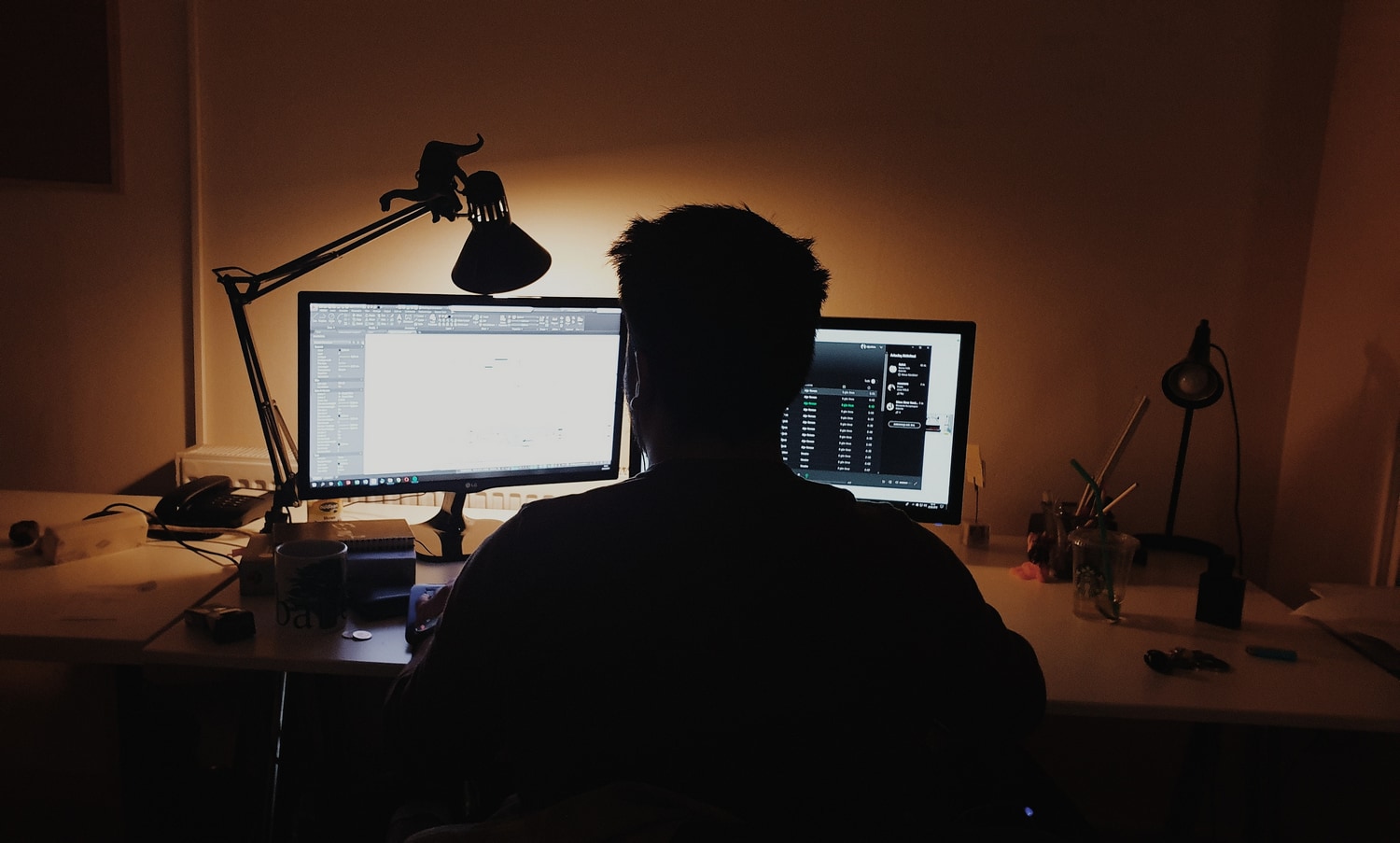
Going to Bed Earlier
As we already understand, light is crucial as it helps us regulate the sleep-wake cycle. As a species, we have evolved to adapt to this natural cycle of our planet because the average duration of a normal day with sunlight is a little over 12 hours: it typically dawns between 6:00 am and 7:00 am and dusk occurs approximately between 6:30 pm and 7:30 pm.
Most of our days begin around sunrise, between 6:00 am and 7:00 am. However, it doesn’t happen the same way with the end of our activities, which often continue well past sunset. This situation is directly related to the sunlight we perceive. If we go to bed late, we can’t simply turn off the sun at 6:30 am to keep sleeping the next morning. The high sensitivity of our photoreceptors, our natural internal clock typically set between 6 and 7 am, and the natural noise in most places where we live almost obligate us to wake up with the sunrise.
Understanding this, it’s clear that if we want to get the recommended amount of sleep for our age, which is between 7 and 8 hours for most adults, it’s imperative to go to bed earlier and do everything possible to avoid external stimuli, such as screens, noise, or highly stimulating activities. Instead, engage in relaxing habits even hours before bedtime.
This is particularly important for people who have trouble falling asleep or who normally take longer to do so. Remember that, on average, an adult should take less than 30 minutes to fall asleep. So, if it takes you longer, it’s crucial not only to go to bed earlier but also to engage in relaxing habits hours before going to bed so that you will be able to reduce that time.
Relaxing Habits at the End of the Day
Falling asleep is a process that takes time, as it involves other subprocesses, such as the body’s temperature dropping. Therefore, we should try to relax both the body and the mind not only at the exact moment of going to bed but even hours before bedtime.
In the last few hours before bedtime, we should avoid highly stimulating habits and, on the contrary, it’s better to establish habits that help us relax.
A good way to set the rhythm of activities in our day is to imagine 8-hour intervals: the first 8 hours after waking up are the perfect time for activities or habits that may generate the most friction or those that are particularly challenging. In the following 8 hours, usually concluding our workdays and returning home, we should incorporate more creative and relaxing habits to prepare for the last 8 hours, which are for sleep.
Some habits that can help us relax and fall asleep more easily hours later include:
- Relaxation routine: Dedicate at least 15-30 minutes to a relaxation routine. You can include deep breathing exercises, gentle stretches, or even meditation.
- Warm bath: A hot bath can relax your muscles and prepare your body for sleep. You can add bath salts or relaxing essential oils like lavender.
- Reading: Reading a book, preferably on topics unrelated to work or worries, and preferably without using screens or using e-ink devices.
- Listening to soft music: Listening to relaxing music or nature sounds can be an effective way to create a peaceful atmosphere.
- Gentle exercise or Yoga: Gentle exercise like yoga in some of its variations or muscle stretching exercises can be very useful at this time of day.
- Writing: Keeping a gratitude journal or a positive thoughts diary, for example, writing down three things you’re grateful for or reflecting on something positive that happened during the day. This can help you release negative thoughts and promote relaxation.
- Visualization: Practice positive visualization. Imagine a peaceful and relaxing place or a pleasant situation. This can help reduce stress and anxiety.
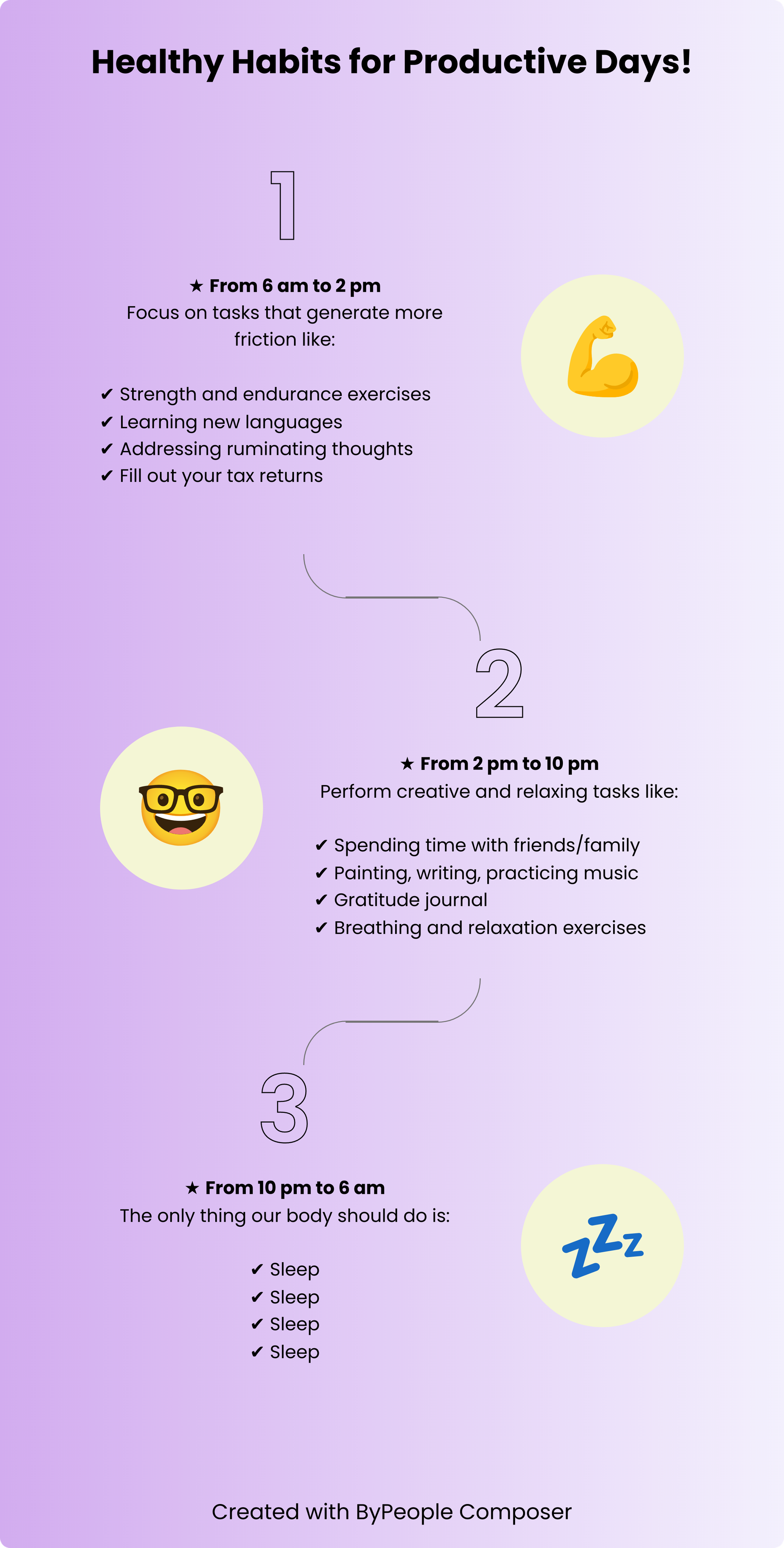
Healthy habits distribution throughout the day, poster created automatically with ByPeople Composer
Lower Your Temperature Before Sleep
As your body needs to lower its temperature to facilitate sleep, take a cold shower or keep your bedroom cool to aid the process of falling asleep. Maintaining a cooler environment supports the natural regulation of sleep-related hormones.
A cool bedroom environment is more conducive to sleep than a warm room temperature. Keeping the temperature approximately 1 to 2 degrees lower than usual is recommended.
No Food or Alcohol Close to Bedtime
Avoid eating too close to bedtime, preferably at least three hours beforehand. Heavy, fatty meals can trigger intestinal reflux and disrupt your sleep. Spicy foods, in particular, can increase body temperature, which hinders falling asleep. Opt for complex carbohydrates.
Skip alcohol as it may initially aid sleep but can ultimately disrupt REM sleep, a vital restorative phase. Also, consuming food after 9 or 10 PM mostly provides unnecessary calories. If you must eat, focus on complex carbs like whole grains, legumes, and vegetables.
Avoid alcohol before sleep, contrary to popular belief, alcohol doesn’t aid sleep. It may induce unconsciousness faster, but negatively affects REM sleep, which is one of the most important phases of your sleep time.
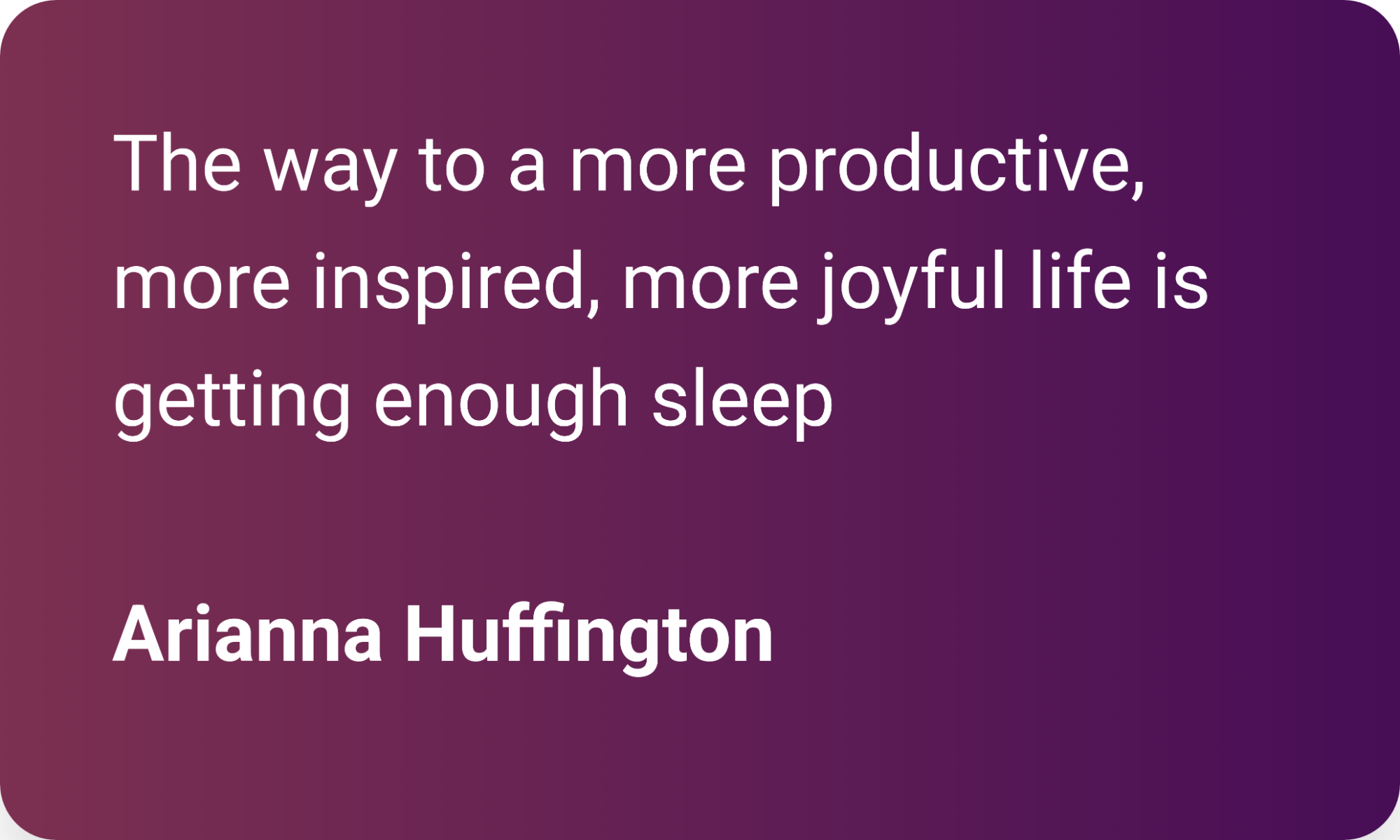
Image created automatically with ByPeople Composer
Engaging in Intermittent Fasting or Practicing Time-Restricted Feeding
I recently reviewed the latest studies and meta-studies related to intermittent fasting, specifically focusing on time-restricted feeding (TRF), which is a somewhat simpler form of intermittent fasting that takes advantage of the natural fasting hours we have while sleeping. In general, there is quite a bit of evidence in humans regarding the positive effects of TRF in various aspects, such as improving insulin levels, reducing elevated cholesterol levels, enhancing hypertension profiles, weight loss, and improving the quality and quantity of sleep.
Therefore, it is very worthwhile to consider some form of intermittent fasting to improve our sleep hours. A simple and not-so-restrictive way to practice intermittent fasting is to use a straightforward technique that involves not eating for two or three hours before going to bed and for one or two hours after waking up. This way, we implement fasting that is easy to follow, aligns with our social dynamics, and takes advantage of the natural fasting period we have while sleeping.
What happens in our bodies when we create these extra fasting windows around our sleep time is that we allow digestion to occur before bedtime, freeing our bodies from this task while sleeping. Additionally, by not consuming food or liquids, we also reduce the need to go to the bathroom in the middle of the night, which is a common issue that affects sleep quality. In the event that we practice this or another form of intermittent fasting, it is important to drink one or two glasses of water upon waking up since we have gone many hours without consuming food or beverages and may experience natural dehydration.
Use Your Bed for Sleep Only
Avoid studying or working in bed to establish a clear association between your bed and sleep. This helps train your brain to associate the bed with rest and relaxation, making it easier to fall asleep.
Cut Down Your Caffeine Intake at 2pm
Caffeine is good for your health, but it can affect your sleep, so be mindful of its consumption. Caffeine is also present in tea, soda, pre-workouts, energy drinks, and even chocolate. Adults without sleep issues can tolerate up to 3-4 cups of coffee before 2 PM
Caffeine should be avoided 8 to 10 hours before bedtime since it inhibits Adenosine receptors, which play a role in sleep initiation and maintenance.
Problem-solve during the day
Anxiety and racing thoughts can disrupt sleep. To manage them, designate a specific daytime hour to address your problems, worries, and difficult situations. Physically write down your thoughts and possible solutions, helping your brain understand they can be dealt with later.
If you experience rumination or anxiety, it’s essential to make a plan to address these situations during the daytime. Establishing schedules to tackle stressful situations, and writing them down (on paper) the night before can be an effective strategy to prevent your mind from dwelling in those issues during sleep hours.
Yoga Nidra, Reading (physical books) or meditation, can greatly help with these issues.
Start exercising daily
Exercise is generally beneficial for better sleep, particularly moderate intensity workouts like cardio type 2. Aim for 20-40 minutes of daily exercise. However, high-intensity exercise is best done at least 2-4 hours before bedtime to allow the body to cool down.
Even 20 daily minutes of phase 2 cardio, like walking a bit faster than normal, will help you sleep better, but avoid it around 1/2 hours before bedtime.
What about melatonin and other supplements?
There is currently no strong evidence that supplements like Melatonin, Magnesium (in any form), Valerian Root and others have a significant effect on sleep quality, except for older adults (60+ years old) under medical advice. The tool with most evidence to backup positive results in helping chronic sleep disorders is CB therapy.
Remember, improving sleep quality requires consistency and creating a sleep-friendly environment. Prioritize a regular sleep schedule, manage light exposure, practice relaxation techniques, and maintain a healthy lifestyle. Sweet dreams!
Having good sleeping habits plays a vital role in maintaining good mental health, chronic lack of sleep can increase the risk of developing mental health disorders like depression and anxiety. The correlation is quite glaring: according to NAMI (National Alliance on Mental Illness) approximately 50-80% of patients with mental health conditions experience chronic sleep problems.

Juan Pablo Sarmiento
System engineer from the National University of Colombia, with special interest over entrepreneurship, marketing, productivity and well-being.
Several projects and startups launched in over 20 years of experience.
Best Seller Deals
Check out time-limited deals on software and designs packs